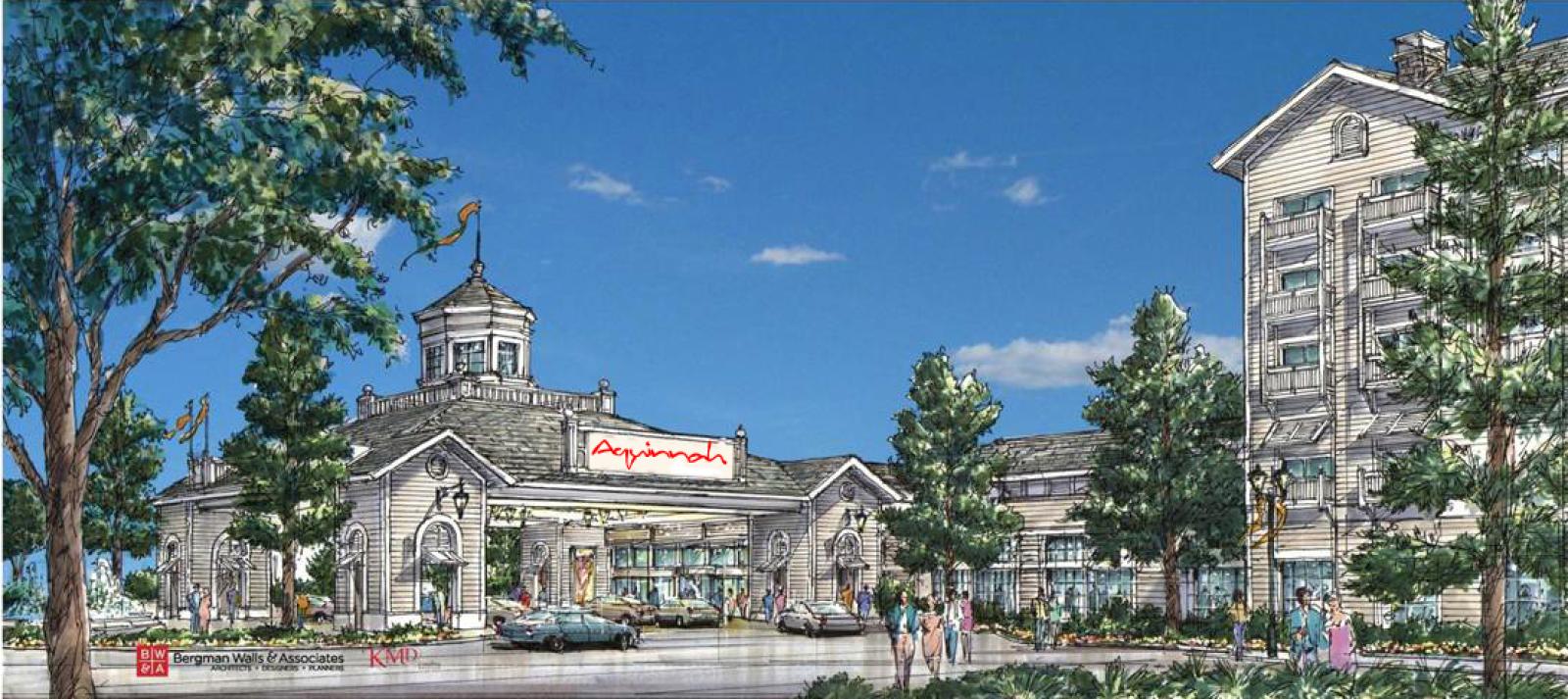The Wampanoag Tribe of Gay Head (Aquinnah) unveiled plans this week for a $167 million resort casino during a presentation in Lakeville. But the response from the communities of Lakeville and Freetown, where the tribe hopes to place the complex was “not positive,” according to Freetown town administrator Richard Brown.
On Tuesday a spillover crowd packed the auditorium of the Apponequet Regional High School auditorium in Lakeville as representatives from the tribe and its casino development team presented plans for the development.
A “preliminary project concept” distributed at the meeting offered the two Southeastern Massachusetts towns their first look at the project, which will feature a 145,000 square-foot casino with 2,700 machines and 36 table games, as well as a 150,000-square-foot, 150-key hotel and a 130,000 square-foot parking garage. The built environment, including buildings, landscaping, parking and roads would cover 40 of the 514 acres of land in Lakeville and Freetown which the tribe has agreed to buy for $15 million.
In a press release issued by the tribe this week, tribal chairman Cheryl Andrews-Maltais claimed that the development offered a “design and scope that fits the area, [and] will be very attractive to residents of Freetown and Lakeville.”
But this week local officials said their constituents felt otherwise — at least those who spoke up on Tuesday.
“I would say that the tone of the meeting Tuesday was pretty negative,” Mr. Brown told the Gazette on Thursday. “The concerns were in the area of crime, traffic, and scale relative to the community.”
Both communities will hold nonbinding referendums on the proposal next week, with Freetown going to the polls on May 29 and Lakeville voting on June 2. The tribe has made it clear that if the referendums are voted down it will not necessarily preclude them from going ahead with plans to build the casino.
According to the tribe, much of the rest of the property, more than 400 acres, will be placed in a trust and protected from development. Developers have also tried to assuage the concerns of community members worried about increased traffic in the rural area by providing access to the complex only through an off-ramp on Route 140, bypassing all town and residential roads in the area.
“From the start we have worked very hard to be open, forthcoming and accessible,” Mrs. Andrews-Maltais said in the press release. “We want to give people genuine, accurate information about the proposal. We are at the start of the process that will create a deep and beneficial relationship with the residents of Freetown and Lakeville.”
The tribe is competing for one of three state casino licenses reserved for an Indian tribe, working against a July 31 deadline to reach an agreement with Gov. Deval Patrick. So far the governor’s office has refused to negotiate with the Aquinnah Wampanoags for a casino compact, citing a 1983 land claims settlement agreement in which the tribe partly waived its right to sovereignty. Governor Patrick has begun negotiations with the Mashpee Wampanoags, who recently unveiled plans for a $500 million casino in Taunton.
The tribe is separately moving ahead with plans to build a Class II gaming facility on the Vineyard on land that it owns in Aquinnah. Activities at Class II casinos are restricted to games of bingo, including electronic versions, as well as card and table games where players can bet against each other but not against a dealer or the house. In an opinion issued last month, Aquinnah town counsel Ronald H. Rappaport said the tribe does not have the right to operate a casino in the town.
The tribe has said it will sue in federal court if necessary to establish its rights to build a gaming facility in Massachusetts.




Comments
Comment policy »